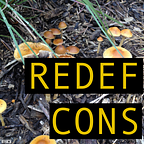All Practicality Aside
Environmentalism is pragmatic. It can exist outside of a deep connection to nature — or even a love of nature. After all, no matter how you feel about a river, you still need clean water.
And yet, there is often an undercurrent of something more. The hard-to-define feeling that drives people to go bird-watching or hiking. The reason why, for some, nature’s value is incalculable.
I have tried to figure it out. It’s part aesthetic, I reasoned. It’s a substitute for religion, I read. It’s —
And then I saw the slug.
I have started to volunteer on a small farm. I take home some fresh vegetables every week, and I get to spend some time outside. Practical. The weeding can be meditative, and I know that I am contributing to my community in a small way. And, it’s only a few hours. Easy. Easy environmentalism.
The other day, I was harvesting baby greens. The bed of soil I was working in was particularly active: worms, daddy long legs, roly polies, caterpillars, ladybugs. An unusual medley of weeds. The occasional rock.
It was really the slug that got my attention — brown-yellow-gray, the length of a pinky, chubby and almost gelatinous. It sat on a rigid stem. Slugs eat decaying matter and allow nutrients to return to the soil. They, apparently, do not ooze their way down a plant when you give them a stern look.
So, I plucked the slug off the stem and put it on the soil, wondering how many times I would have to wash my greens before they seemed slug-less. That’s when I got an inkling of environmentalism’s “something more”. The sun was setting, bathing the farm in a golden hue, and the tomatoes looked ripe in the distance. But it was the slug that nudged me toward an appreciation so primeval that it almost felt spiritual.
The slug performs its function every day, and then it dies. Alone, it seems pointless, a perpetual slog toward nothingness. But this is true of everything, and somehow all of that nothing creates a something. All the bugs and worms and leaves are working together in perfect evolutionary unison, contributing to life upon life upon life. The complexities of interactions and the specificity of niches means that no single part can be aware of its full role. Surely the slug doesn’t know that, in its indirect way, it enables me to have dinner so that I can then cultivate the slug’s dirt home. Any individual encapsulates an infinitely small fragment of the planet and the cosmos, not fully understanding how its pointless journey contributes to the sublime.
This gives me hope. As an environmentalist, it is easy to be paralyzed by the massive changes facing humanity and by our complicity in systems that are nearly impossible to escape. I often worry about my impact on my planet — whether I’m having too much of a negative one (that time I forgot to recycle!) or not enough of a positive one (am I being effective in my environmental work?). I am consumed by my not-enoughness, and yet I respect the slug. Perhaps I should channel this new, profound connection I feel to the earth into respecting myself and my role. Perhaps I should admire what I want to protect more often, rather than letting practical concerns gnaw away at me. Perhaps I should use these “something more” feelings as extra motivation to do right by the planet.
Perhaps I should finish harvesting this row of greens.
Environmentalism places us in the cosmic scheme. It embraces a mechanical, scientific, evolutionary, pragmatic understanding of the world while preserving its beauty. We need the earth for enough reasons that we can ignore the “something more”, but let’s not. Today, let’s marvel at the slug.
*******************************************************************Originally published at redefineconservation.com. Thank you for reading!
